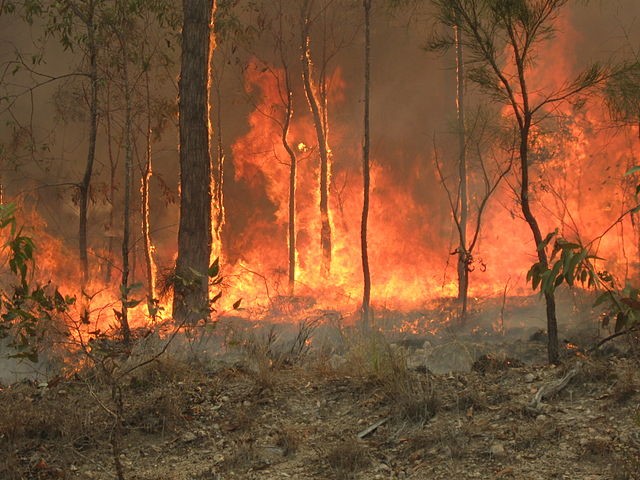



Many everyday foods linked to illegal deforestation, says new research
Nearly 70% of tropical forests cleared for cattle ranching and crops such as soybeans and palm oil were deforested illegally between 2013 and 2019, a new study shows, warning of the impact on global efforts to fight climate change.
According to reporting from the Thomson Reuters Foundation, illegal logging was behind the loss of 4.5 million hectares of forest – an area the size of Denmark - on average each year in Latin America, Southeast Asia and Africa. The statistic comes from a report by US-based non-profit Forest Trends.

"If we don't urgently stop this unlawful deforestation, we don't have a chance to beat the three crises facing humanity - climate change, biodiversity loss and emerging pandemics," said Arthur Blundell, report lead co-author and an advisor to Forest Trends, which works on economic tools to protect ecosystems.
Palm oil cultivation in Indonesia, and soy and beef farming in Brazil - home to roughly 60% of the Amazon rainforest - were key drivers of illegal deforestation, the report said.
The production of other agricultural commodities, such as cocoa used to make chocolate in Honduras and West Africa, and corn in Argentina, was also behind illegal forest clearance.
In Indonesia, at least 81% of forested land cleared to produce palm oil is estimated to be illegal, the report said.
In soy-producing countries, such as Brazil, about 93% of land converted to grow the crop used in cooking and for animal feed was illegal, while 93% of forest clearance for cocoa plantations was illegal and 81% for beef, the report said.
The report defined illegal deforestation as forest clearance that broke national laws, such as loggers and companies failing to obtain permits from landowners or conduct environmental impact assessments, as well as cases involving tax evasion.
Supply chain risks and potential legislation
Environmentalists and some lawmakers in the United States, EU and Britain are calling for legislation that would stop goods grown on illegally cleared lands from ending up on supermarket shelves.
In the United States, Democratic Senator Brian Schatz of Hawaii and congressman Earl Blumenauer of Oregon have announced plans for a bill that would ban US imports of agricultural commodities produced on illegally deforested land.

"I think most US consumers would strongly agree that it's immoral, outdated, and preposterous that products sold on supermarket shelves can be traced back to illegally deforested land," Blumenauer said in a statement.
The approach is modeled on the Lacey Act of 2008 passed in the United States that banned the import of illegally trafficked wildlife, plants and timber, which he said had brought progress.
Britain is planning to introduce similar legislation.
Cutting down forests has major implications for global goals to curb climate change, as trees absorb about a third of the planet-warming carbon emissions produced worldwide.
Carbon emitted from illegal forest clearing for agriculture accounted for at least 41% of all emissions from tropical deforestation from 2013 and 2019, the report said.
Efforts should also be stepped up to work with soy farmers and cattle ranchers to adopt a moratorium on forest clearing.
"Illegal deforestation is a key driver of forest loss and creates significant risk for supply chain companies and financial institutions that may unwittingly supply or finance illegally sourced commodities," said Justin Adams, executive director of the Tropical Forest Alliance, which works to rid supply chains of deforestation links.
Read more about this story here.
Source: Reuters


